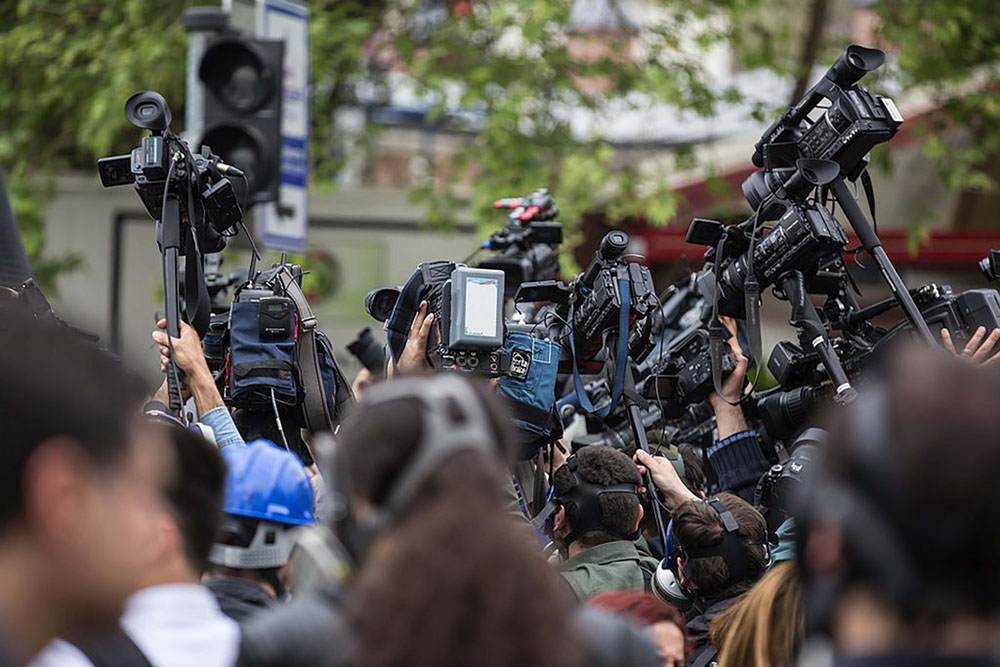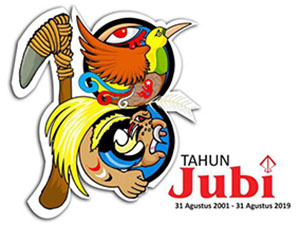
By Roy Ratumakin
JAYAPURA (Tabloid Jubi/Pacific Media Watch): The Indonesian government plans to bring some foreign journalists to Papua for the 2020 National Press Day (HPN), but an independent journalists group has warned against "politicising" the visit.
Lucky Ireeuw, chair of the Jayapura City branch of the Independent Journalist Alliance (AJI), said his group strongly supported the move of the Coordinating Minister for Political, Legal and Security Affairs (Menko Polhukam), Wiranto, to bring the foreign journalists to Papua.
"This is what AJI has been fighting for. We have urged the central government to open as much access as possible to foreign journalists to come and cover Papua without any pressure from various parties.
READ MORE: Indonesia's cover-up over Papuan media freedom violations exposed

"However, the arrival of foreign journalists should not be politicised," he told Tabloid Jubi this week.
Ireeuw hopes that the arrival of journalists would not be facilitated just to carry out coverage in accordance with the expectations of the government.
"Journalists in each of their tasks are not directed or mobilised and have the right to do coverage everywhere, and that has become their duty.
"And the duty of a journalist is to write according to the facts happening in the world, especially in Papua," he said.
See Papuan life first hand
AJI Papua claimed to see this was indicated by the statement from Menko Polhukam, which said it would facilitate journalists to visit Papua for the 2020 National Press Day (HPN).
"If you want to come to Papua and see first hand life in Papua, it is fine. AJI thinks that in the eyes of the world, Papua is considered to be a 'black spot' in terms of information.
The AJI believes the visit is important - "the problem in Papua is very complex", it says.
"Jayapura is not a benchmark for seeing Papua as a whole. If you want to see the results of development, yes please. But it must also be objective about other issues such as education, health, and also human rights cases that have occurred in Papua," Ireeuw said.
Meanwhile, the chair of the Indonesian Television Journalists Association (IJTI) Papua regional management (Pengda), Meirto Tangkepayung, said the Menko Polhukam statement needed to be clarified.
"Does the permission for foreign journalists to enter Papua apply only during the moment of HPN, or is it valid forever?
"We (IJTI) see the arrival of foreign journalists to Papua for what? If you only come and report on the success of development in Papua, even local journalists can do that.
"However, if the problem reveals cases of human rights violations in Papua, local journalists prefer to be in the comfort zone because it involves the life of the journalist.
"There is no news value for life," said Tangkepayung.
Previously, PWI Papua Administrator Jean Bisay has said that the Indonesian government's move to bring foreign journalists or media to Papua was a positive step that should be appreciated and supported by all parties.
The presence of foreign journalists from the Asia-Pacific region in Papua could be a good first step to access for foreign journalists entering Papua generally.
"We all know that all this time foreign journalists have access to enter other regions in Indonesia easier than Papua, where the process is difficult to ask for forgiveness and convolution," Bisay said.
- Indonesia's National Press Day marked the birth of the Indonesian Journalists Association (PWI) in 1946. Then President Soeharto formalised it as National Press Day through a presidential decree in 1985.
- This report has been translated from the Bahasa Indonesian via Pacific Media Watch from the story under the original headline "Jurnalis asing ke Papua saat HPN, AJI Jayhttps://www.jubi.co.id/jurnalis-asing-ke-papua-saat-hpn-aji-jayapura-jangan-dipolitisir/apura: Jangan dipolitisir".
- More West Papua media stories



